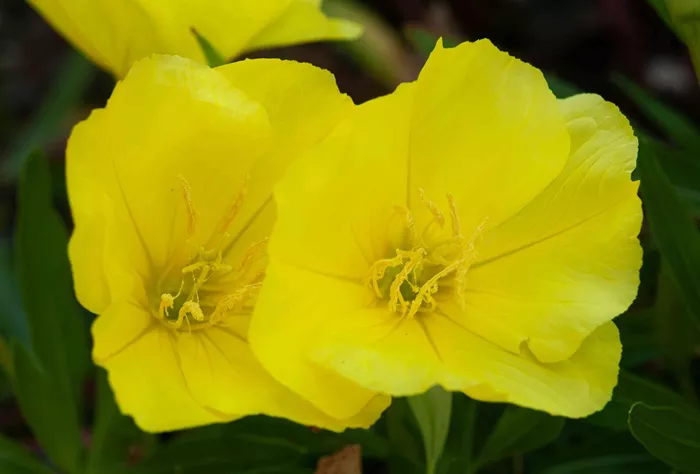October is Bat Month, a time to honor these incredible creatures. Bats play a vital role in pollination, especially for plants they love for their nectar. It is essential to provide native plants for bats, just as we do for our native insects. Without these pollinators, many plants would struggle to survive. Bats are particularly important because they can spread more pollen over greater distances than many other pollinators.
One such plant is the evening primrose, known scientifically as Oenothera. This plant has a fragrant scent that attracts bats and features large bell-shaped flowers that allow them to access the pollen. The evening fragrance makes Oenothera an excellent choice for planting near windows and outdoor seating areas. The flowers bloom in the evening, filling the air with their perfume, and then close up as the sun rises. These blooms are also a favorite of sphinx moths, which can sense the scent from afar.
Oenothera begins to bloom in March, showcasing beautiful pale pink flowers that shine in the moonlight. This drought-tolerant plant thrives in partial shade and adapts to various soil types. While it may go dormant during periods of high humidity and heat, it fits well in naturalized gardens and supports pollinators, making it an excellent choice for sustainable landscaping.
Wildlife Benefits
Oenothera provides many benefits to wildlife, including:
Its foliage offers cover for toads and frogs.
The seed pods supply food for birds during winter.
Its nectar attracts hummingbirds, moths, bees, butterflies, and bats.
It serves as a host for various moth species, including the primrose moth (Schinia florida), green-banded day sphinx moth (Eumorpha fasciatus), white-lined sphinx moth (Hyles lineata), and kern primrose sphinx moth (Euproserpinus euterpe).
The plant supports specialized bees.
Fun Facts
The name Oenothera comes from the Greek word “oinos,” meaning wine. The roots were once used to scent wines.
The leaves can be cooked or eaten raw in salads, while the roots have a peppery taste. The flowers can be used in teas or eaten fresh.
Oenothera has been used in traditional remedies for headaches, sore throats, and rheumatism. A tea made from the leaves or flowers can help relieve headaches.
All parts of this plant have been utilized for various medicinal purposes. Evening primrose oil is popular in many countries for treating eczema and breast pain. Native Americans used the entire plant for food and to treat bruises and hemorrhoids.
The plant symbolizes renewal and new beginnings, featuring in folklore and tattoos throughout history.
In Irish mythology, Oenothera is said to be a favorite of fairies; some believe that eating the plant allows one to see fairies.
Companion Plants
To enhance your garden with Oenothera, consider pairing it with these companion plants:
- Achillea millefolium (white yarrow)
- Anemone quinquefolia (wood anemones)
- Asclepias tuberosa (butterflyweed)
- Callirhoe involucrata (purple wine cups)
- Coreopsis lanceolata (lance-leaved coreopsis)
- Dicentra eximia (bleeding heart)
- Echinacea purpurea (purple coneflower)
- Ferns
- Gaura lindheimeri (gaura)
- Geranium “Gerwat” Rozanne (hardy geranium)
- Liatris microcephala (small gayfeather)
- Mertensia virginica (Virginia bluebells)
- Monarda punctata (spotted beebalm)
- Monarda fistulosa (wild bergamot)
- Parthenium integrifolium (wild quinine)
- Penstemon digitalis (beardtongue)
- Phlox pilosa (downy phlox)
- Polemonium reptans (Jacob’s ladder)
- Salvia greggii (autumn sage)
- Sisyrinchium bellum (blue-eyed grass)
- Schizachyrium scoparium (little bluestem)
- Scutellaria incana (skullcap)
- Silene caroliniana (wild pink)
- Tiarella cordifolia (foamflower)
- Tradescantia virginiana (Virginia spiderwort)
Related topics:
- One-Third of All Known Plants Live on Islands
- Mapping Project Identifies 20 Invasive Plant Species in Indiana’s Deam Wilderness
- Desert Plants Also Suffer from Extreme Heat


